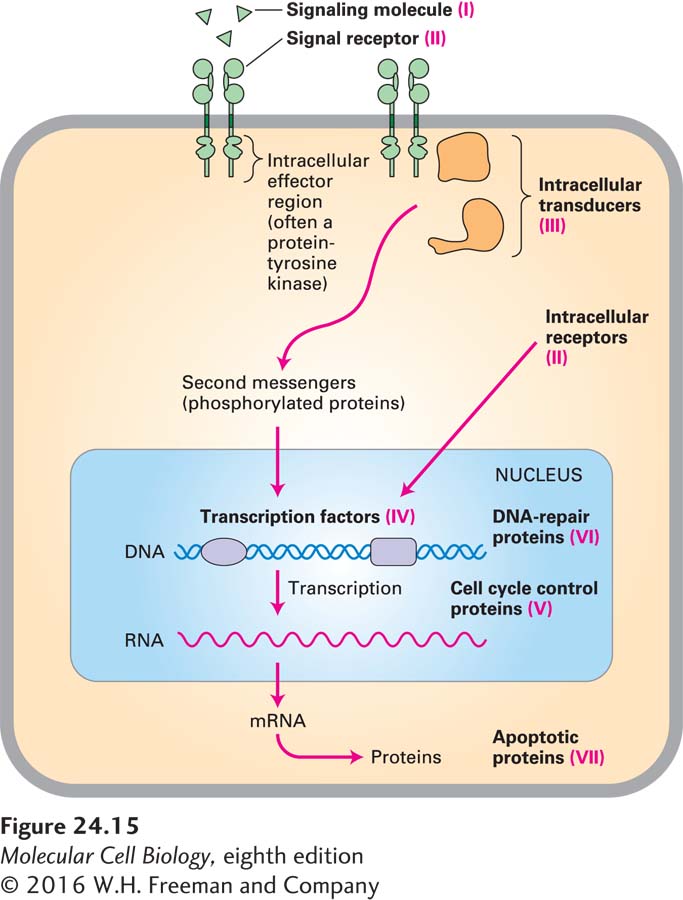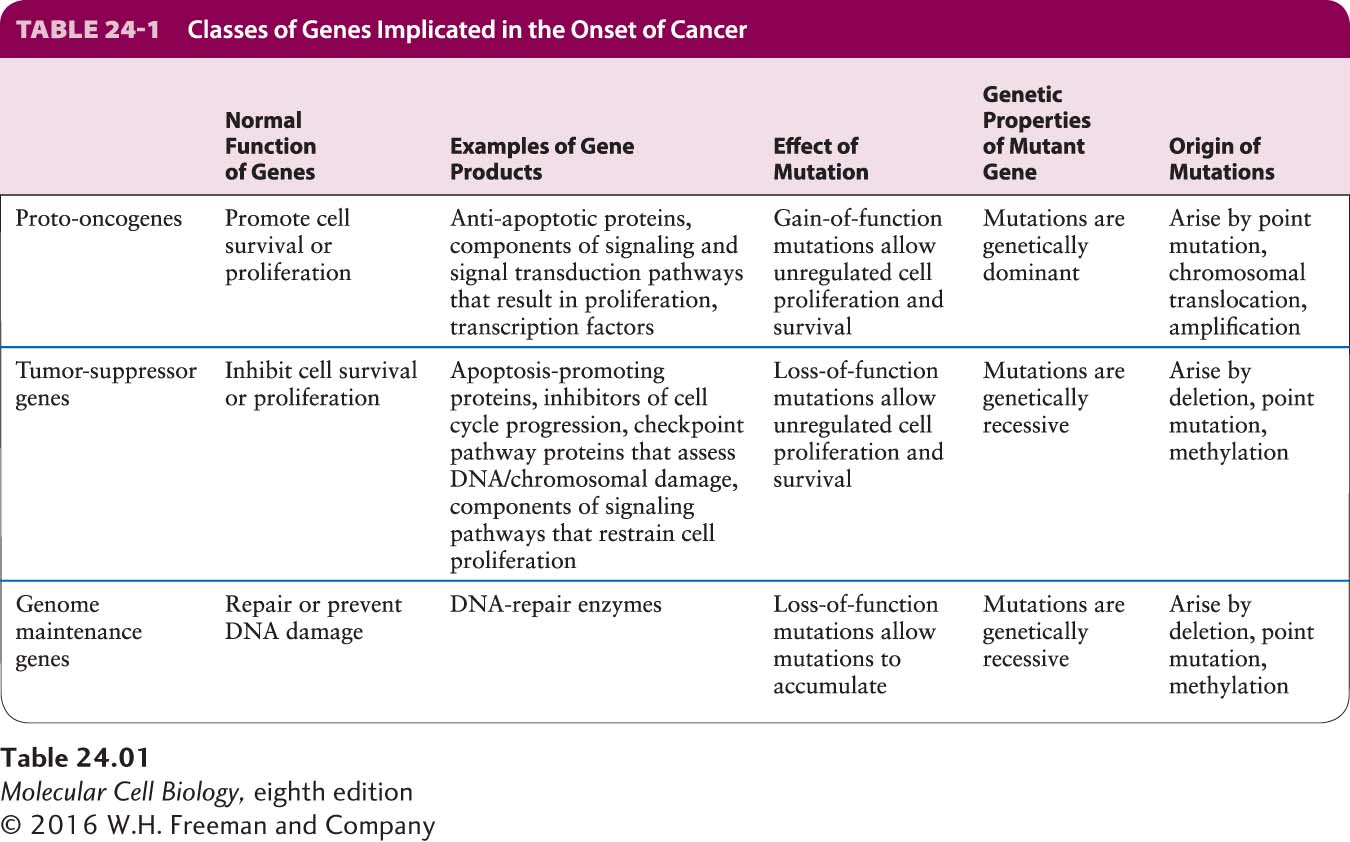As we have noted, mutations in three broad classes of genes—proto-oncogenes (e.g., RAS), tumor-suppressor genes (e.g., APC), and genome maintenance genes—play key roles in cancer induction (Table 24-1). These genes encode many kinds of proteins that help control cell growth and proliferation (Figure 24-15). Virtually all human tumors have inactivating mutations in genes whose products normally act in various cell cycle checkpoint pathways to stop a cell’s progress through the cell cycle if a previous step has occurred incorrectly or if DNA has been damaged. For example, most cancers have inactivating mutations in the genes coding for one or more proteins that normally restrict progression through the G1 stage of the cell cycle or activating mutations in genes coding for proteins that drive the cells through the cell cycle. Likewise, a constitutively active RAS or other activated signal-transducing proteins are found in several kinds of human tumors that have different origins. Thus malignancy and the intricate processes for controlling the cell cycle discussed in Chapter 19 are two faces of the same coin. In the series of events leading to the growth of a tumor, oncogenes combine with tumor-suppressor mutations to give rise to the full spectrum of tumor-cell properties described in the previous sections. In this section, we consider the general types of mutations that cause cancer and explain why some inherited mutations increase the risk for particular cancers. We end the section with a description of how the molecular analysis of tumors is changing the manner in which cancer is treated. Personalized medicine—the ability to diagnose individual tumors at the molecular level and to design treatments for a patient’s specific cancer—is likely to become a reality in the twenty-first century.

FIGURE 24-15 Cancer can result from the expression of mutant forms of seven types of proteins. Mutations changing the structure or expression of proteins that normally promote cell growth generally give rise to dominantly acting oncogenes. Many, but not all, extracellular signaling molecules (I), signal receptors (II), signal-transducing proteins (III), and transcription factors (IV) are in this category. Cell cycle control proteins (V), which function to restrain cell proliferation, and DNA-repair proteins (VI) are encoded by tumor-suppressor genes. Mutations in these genes act recessively, greatly increasing the probability that the mutant cells will become tumor cells or that mutations will occur in other gene classes. Apoptotic proteins (VII) include tumor suppressors that promote apoptosis and oncoproteins that promote cell survival.



